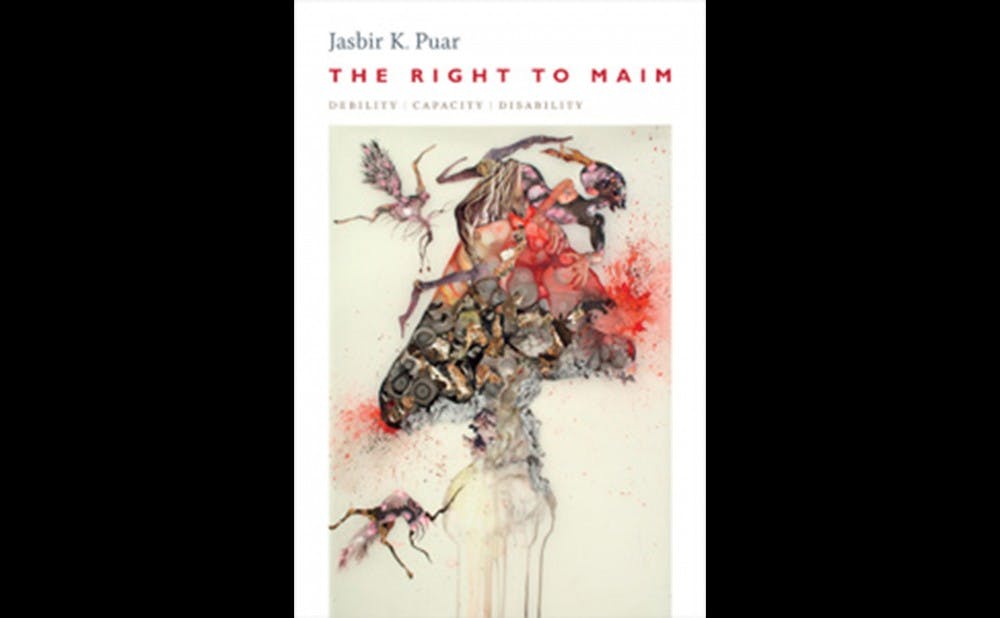Duke University Press recently drew criticism over its decision to publish a book which has been criticized as anti-Israel.
Written by Jasbir Puar, associate professor in women and gender studies at Rutgers University, The Right to Maim: Debility, Capacity, Disability details how Israelis deliberately shoot Palestinians with the intent to maim and debilitate as a mechanism for exerting control over Palestinians.
The content of the book has led to heavy criticism of both it and Duke University Press. Asaf Romirowsky, executive director of Scholars for Peace in the Middle East and former Israeli Defense Force International Relations liaison officer in the West Bank, called The Right to Maim “pseudo-scholarship with no data to back up the fallacious theories,” in an interview with the Washington Free Beacon.
"It's a compliment to call the book academic garbage—and now it gets the imprimatur of a university press, making it a legitimate secondary source that will be taught and cited,” Romirowsky told the Washington Free Beacon.
In an interview with The Chronicle, Romirowsky argued that other conclusions would have been made for the review if it had been sent to an external reviewer that deals with ethics and the region dynamics of Israel-Palestine.
Duke University Press has a single-blind peer review process, he noted, which allows reviewers to know the identity of the work's author, but the author cannot know the identity of the reviewers.
"[The process] may be ‘blind’ as far as the names itself, but again, the author still has the right and does recommend individuals, and it would not surprise me if the individuals who have read it are people that know her and are familiar with her political views. There is a kind of echo-chamber here," Romirowsky said to The Chronicle. “Duke is not doing itself any favors by publishing a book without any other perspectives on the issue.”
miriam cooke, Braxton Craven professor emerita of Arab cultures, affirmed that “the author may suggest names” for those who will read the manuscript to “evaluate for publication” but cannot directly choose.
Steve Cohn, director of Duke University Press, declined to comment.
Romirowsky explained that he considered the book's thesis of “maiming individuals in order to dehumanize” a “total fallacy.”
“Enough counter-examples can be found to reject her assertions in a simple Google search,” he said.
Romirowsky added that in conflict areas, violence exists on both sides, but Israel abides by rules of engagement. He noted that the armed services has the “absolutely correct” policy of “maintaining integrity of civilians.”
He noted that he was unaware of any policy to maim by Israeli armed services, but instead raised examples of Israel humanitarian aid.
“The opposite is actually true," Romirowsky said. "The rules of engagement are such laid out that maintaining the security and civility of the civilian population, they go to the extreme to make that happen.”
Reflecting on the 2014 Gaza War, Romirowsky noted that in such areas of conflict, the armed forces sent out leaflets, texted people to leave their homes and talked about maintaining the integrity of civilians over combats. He pointed to the Ziv hospital in Safed, Israel, which treats Syrian refugees, as a more recent example of their humanitarian work.
Rominowsky said that Puar has “totally negated” in her thesis any such efforts of peace-making with the Palestinians in her book and given only a one-sided account.
Puar visited institutions across the country with the thesis of The Right to Maim on a speaking tour, with stops at Vassar College, Dartmouth College, Rutgers University, Columbia University, Stanford University and New York University. During her speeches at Vassar and Dartmouth, she refused to permit recordings of her talk.
“She has prevented people from recording the lectures," Romirowsky said. "I don’t know what she is exactly hiding."
However, an open letter from her supporters—including hundreds of scholars—addressed to former President of Vassar College Catherine Hill insisted that Paur's work is based on scholarship and that the criticism she faced at Vassar College should be seen as a threat to both academic freedom and the right to free speech.
Puar did not respond to a request seeking comment by press time.
Ben Ehrenreich, author of The Way to the Spring: Life and Death in Palestine, said that though he has not read Puar’s book, he is familiar with the practices she described.
He noted that in 2013, he spoke with residents of the Jalazoun refugee camp in Palestine, who testified to the systematic crippling of the young men in the camp by Israeli snipers. He also interviewed a physician working in the emergency room of the local hospital, who noted that he had treated many young men from Jalazoun who had been shot in the knee with precise sniper fire.
"Occupation functions primarily not to confiscate Palestinian land, but to crush the spirit of Palestinians, individually and collectively,” Ehrenreich said. “The shootings...are difficult to understand except as an attempt to dominate, humiliate and both spiritually and physically debilitate [Palestinians]."
Ehrenreich said that journalists and scholars who publish work like Puar's that expose such practices are frequently accused of anti-Semitism by apologists for the Israeli state. He calls this strategy of smears and attacks “worse than shameful.”
“Such intellectual dishonesty is the last recourse of those who know their positions are otherwise indefensible," Ehrenreich said. "It should have no place in open political discourse, academic or otherwise.”
Get The Chronicle straight to your inbox
Signup for our weekly newsletter. Cancel at any time.

